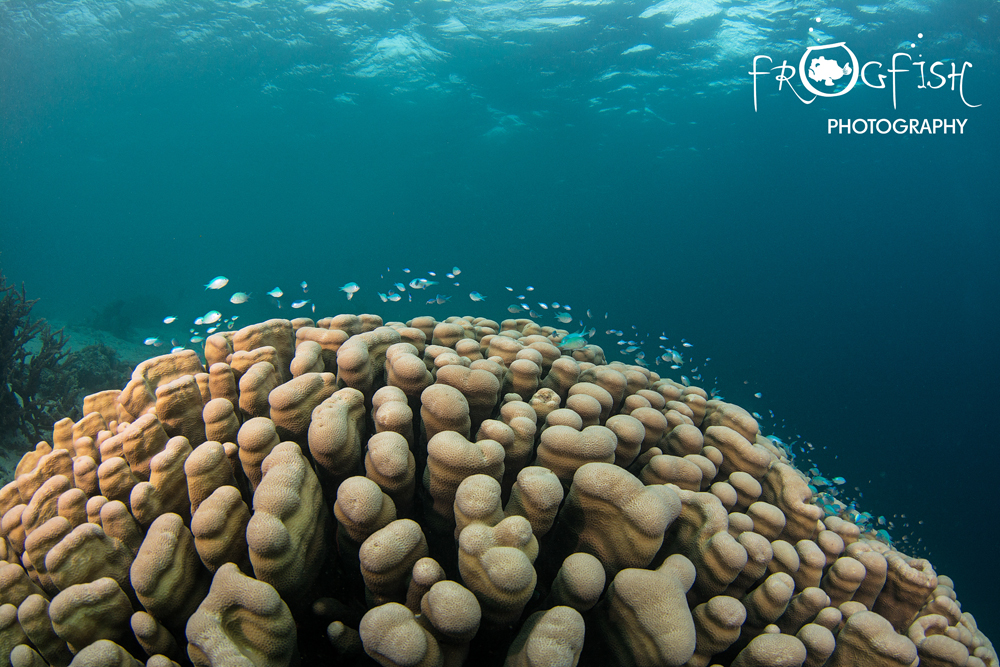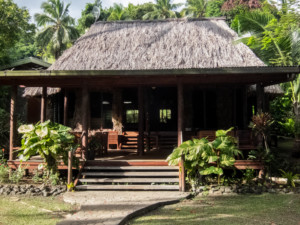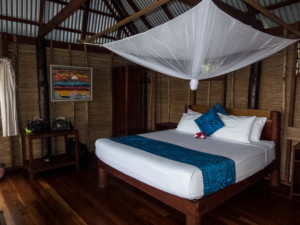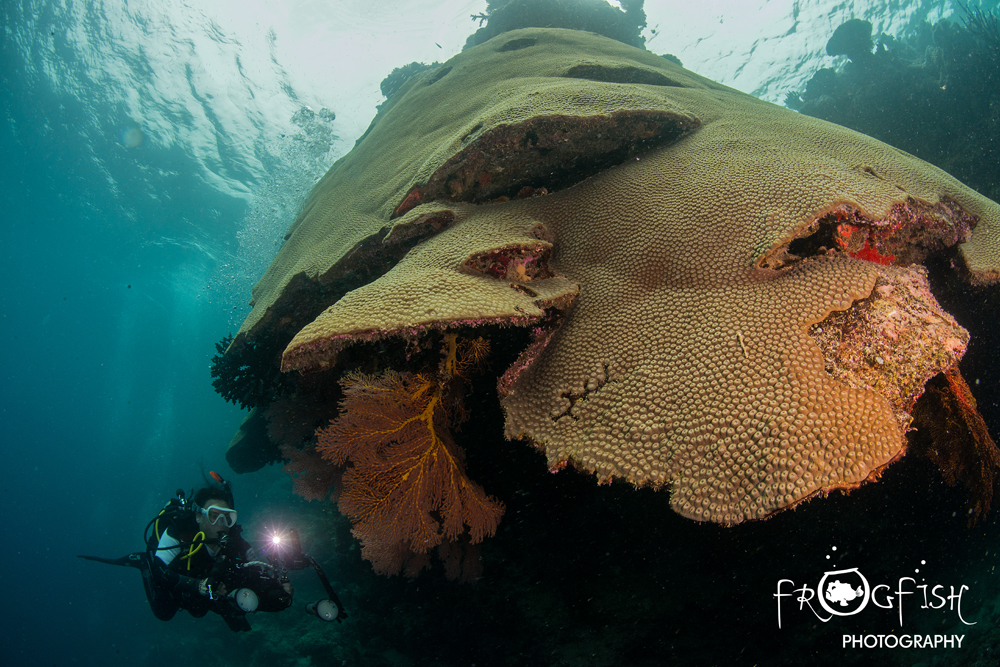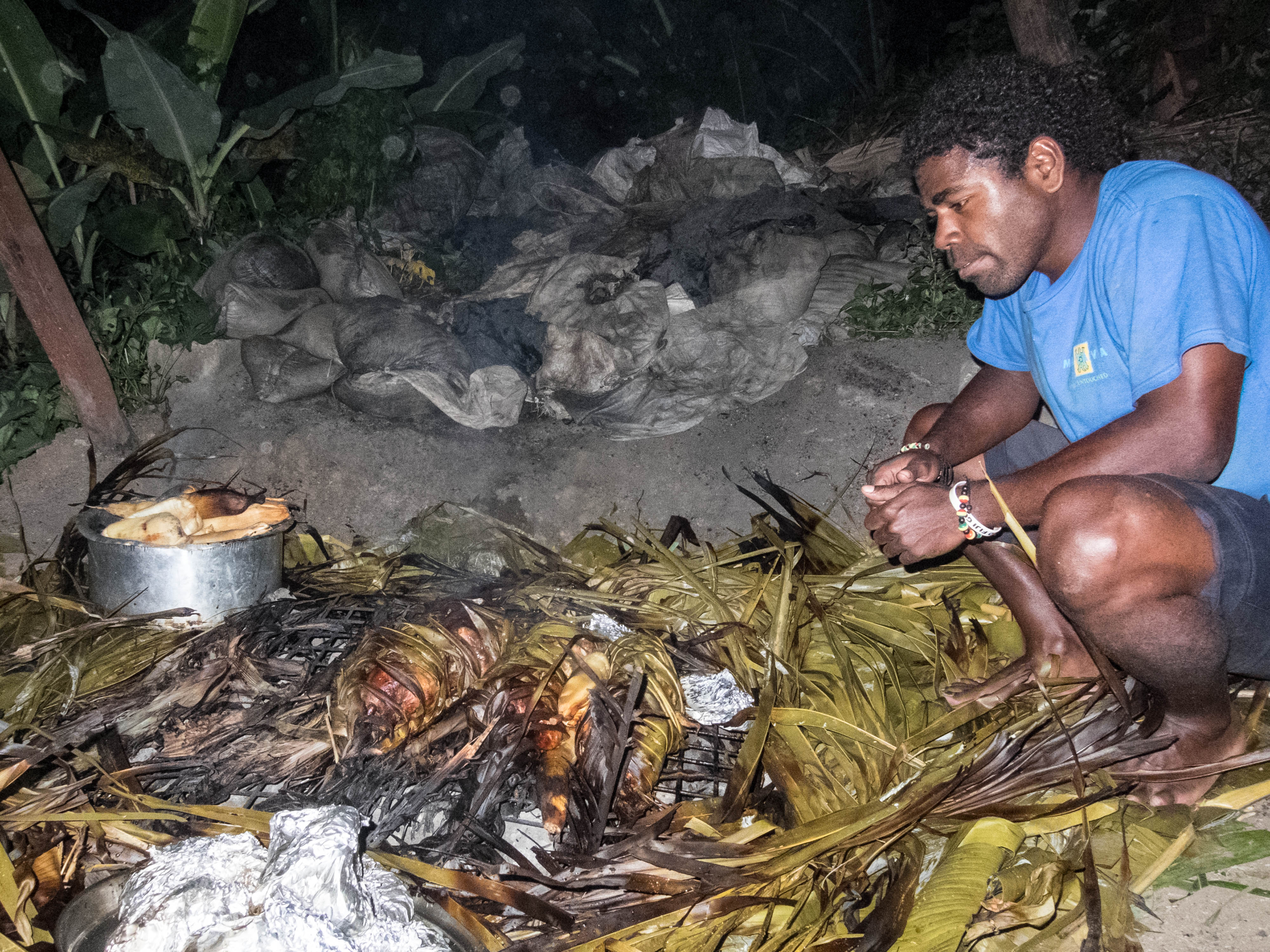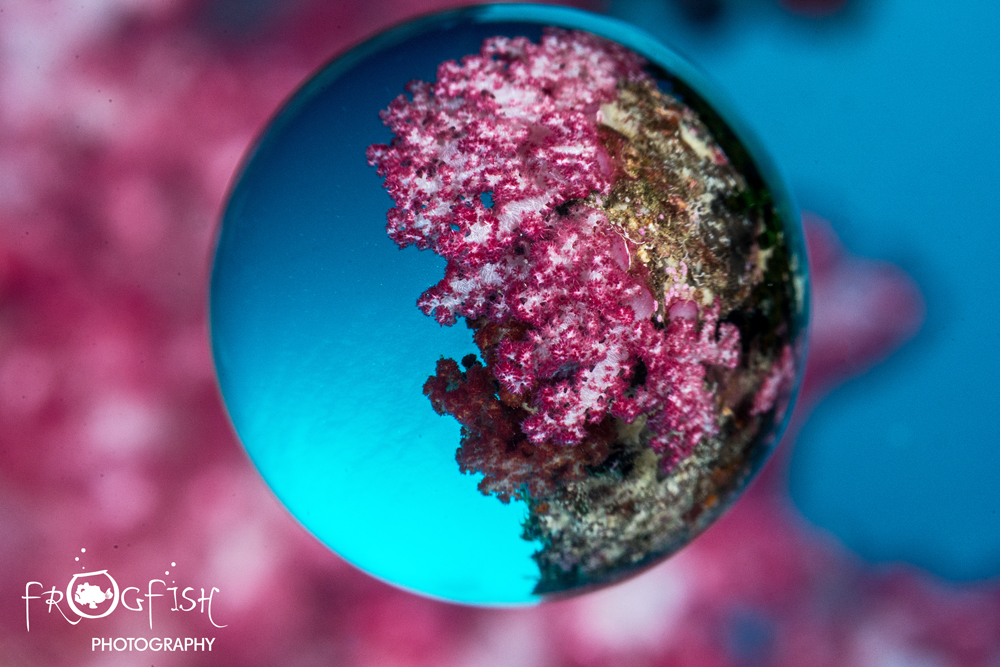News
Matava – An Eco Hideaway in Fiji
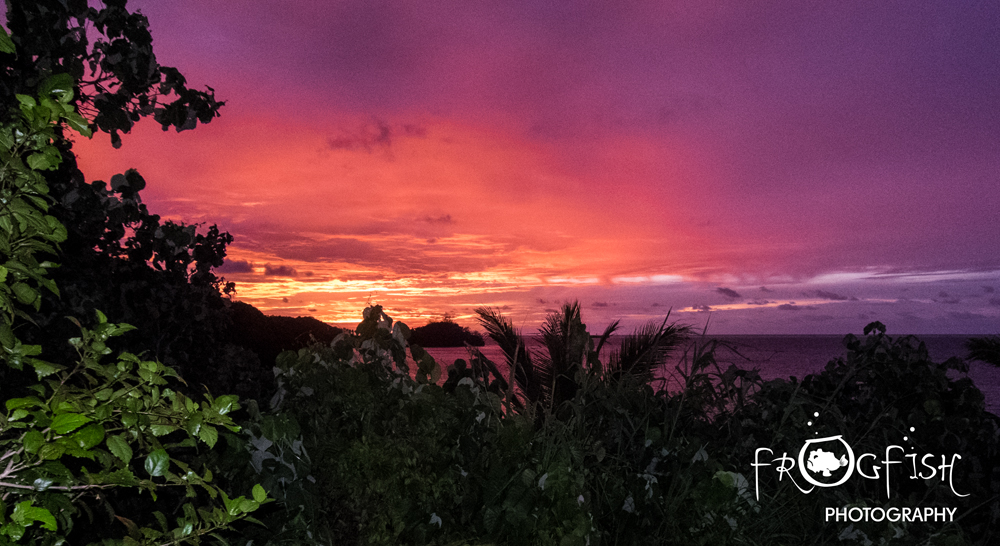
When you land at the small airstrip on the island of Kadavu, this is just the beginning of your adventure to Matava. We were met at the airport by the Matava team, who loaded our not insubstantial luggage onto the back of a pickup truck, and via local shops for provisions, we headed to the coast just a 5 minute drive away. Here the guys loaded our bags onto one of Matava’s metal boats, but there was a problem. Low tide had grounded the boat, and so we had to wait for more water to come into the bay, before wading out, with our shorts rolled-up, to deeper water. Once going, the journey takes about an hour (depending on how much shallow reef there is to avoid), and you really need to have a spirit of adventure to travel here! The coastline on this side of Kadavu is lush and green and the forests and mangroves alike are healthy with no roads cutting through them. The inhabitants of the tiny villages here use boats as their only form of transport, and when we arrived at the resort, there was a short wade to make it onto the boat deck, where we received a warm welcome.
Matava is one of the most eco-friendly resorts you will find. Set it the forest, the main diving and reception area, dive centre and all the rooms are made to have a traditional Fijian feel. There are solar panels providing electricity to the resort, and guests are asked to only use fans at night (there is no air conditioning) and to charge electrical equipment at a dedicated station. They also grow their own food here, so all your salad, veg and fruit are organically grown by the staff. You will not see any plastic water bottles here, either; in fact, we do not recall seeing any single-use plastics during our stay.
Once unpacked, and when our camera gear was all setup, we headed back down the short flight of stairs to the outdoor diving area. Heidi and Josh, who had arrived on the same flight as us, did not look happy. Josh was here to complete his Open Water course, and the instructor had fallen ill. In a remote resort like this one, this meant that his course would be delayed and he may miss several days of diving – not great when you have travelled from Seattle just for this adventure. So Nick volunteered to complete Josh’s course in the two afternoons we had at Matava; it was going to be a busy couple of days.
Matava is famous for its Manta Ray dive, which is about a 45 minute boat ride from the resort, on the outside of the reef. There is a cleaning station that sees mantas visit here all year around, and as we only had two days of diving, we had hoped to visit this site on at least one of the days, but it was not to be. On the first day the weather was against us, with strong winds making the journey difficult with large waves on the outer reef. Instead, we headed to a more local, yet beautiful and colourful, coral reef. Our favourite dive of the day was at Fan Dream Time, which, as the name suggests, is covered in all colours of sea fan. A quick lunch and we were back on a smaller boat heading out to a shallow, sandy bay to complete some training dives.
The food at Matava is excellent. Caroline was well catered for as a veggie, and all the evening meals were themed by country; Thai, Greek, Italian and traditional Fijian. The Fijian traditional meal is called a Lovo, where meats and vegetables are cooked in the ground, covered by banana leaves. It is accompanied by the traditional drink – Kava, which is made up of ground up root, soaked in water, to produce a drink that looks somewhat like a muddy puddle. There is a ritual to drinking Kava, and we had a village chief leading our evening, but the end result is a numb tongue and a good night’s sleep! It is a fun evening where both staff and guests mix and chat into the night.
Our next day brought bad news. We were not to dive the manta reef that day either. The dive master decided, instead, to take us to a wall dive called Japanese Reef. Our two dives were spread to cover either side of the cut, one with and one against the current. We did see whitetip sharks, who we disturbed from their slumber on the sea bed, to circle around the group before heading to deeper water. We also decided that this would be a great opportunity to do some creative photography and put the “bubble lens”, or Magic Ball, from Saga (www.sagadive.com) onto the housing for some fun images (review coming soon). Once again, back at the resort, we headed out to complete Josh’s course, which we will write about in more detail in a later post.
One of the joys of trips like this one is the people you get to meet, and we had a fantastic bunch of divers with us at Matava. There was never a dull moment and always plenty of banter and jokes, and so it was sad to say goodbye the next day as we did our wade, boat, wade, truck & flight back to the main island and onto our next adventure.
Find out more about Nick and Caroline at www.frogfishphotography.com.
Gear News
Introducing the TR-80, IR-50 and CS-30 Regulators from DYNAMICNORD

Whether you are a beginner or a professional diver – with the three new main regulators from DYNAMICNORD, everyone will find their favourite regulator. They all look super stylish.
Excellent performance with the TR-80
Quality and performance are the be-all and end-all for regulators. It is not for nothing that the TR stands for Tec Reg. The innovative design of the TR-80 guarantees absolute reliability – even in ice-cold waters.

Perfect breathing effort at 0.8 J/l / certified for diving in waters below 10 degrees / structural design made of solid brass for best cold protection / membrane-compensated design with dry seal of the first stage / reduced exhalation effort thanks to optimized exhalation membrane and bubble deflector / adjustable Venturi (dive/predive) and adjustment knob for individual inhalation comfort / innovative design of the front cover prevents free-flow in strong currents or when diving with scooters / design made of sandblasted brass, matt chrome finish / 2 HP and 4 LP outlets / mouthpiece made of high-quality, anti-allergic silicone for maximum comfort.


Amazing underwater adventures with the IR-50
The IR-50 is the top regulator for advanced and experienced divers. Natural breathing is the essence of this regulator.

Ideal breathing effort at 0.8 J/l /certified for diving in waters below 10 degrees / compensated membrane / adjustable venturi (dive/predive) and adjustment knob for individual inhalation comfort/ outlet valve and deflector for minimum exhalation effort and reduction of bubbles on the face / design made of sandblasted brass, matt chrome finish / 2 HP and 4 NP outlets / mouthpiece made of high-quality, anti-allergic silicone for maximum comfort.


The Workhorse – our CS-30
For diving centres and diving beginners – the workhorse stands for strong construction, reliability and robustness. Perfect for your training.

Optimal breathing effort at 0.8 J/l /recommended for diving in waters above 10 degrees / non-compensated piston / adjustable venturi (dive/predive) / outlet valve and deflector for minimum exhalation effort and reduction of bubbles on the face / design made of sandblasted brass, matt chrome finish / 1 HP and 3 NP outlets / mouthpiece made of high-quality, anti-allergic silicone for maximum comfort.


Octopus OP-30
The OP-30 is the ideal addition to all DYNAMICNORD regulators. It is identical in construction to the CS-30.

The TR-80, IR-50, CS-30 (DIN & INT) regulators and the Octopus OP-30 are available from DYNAMICNORD dealers and in the online store.
DYNAMICNORD – Your Outdoor Companion.
Marine Life & Conservation
Paul Watson Released as Denmark Blocks Japan’s Extradition Bid

Renowned anti-whaling activist Paul Watson has been released from custody in Greenland after spending five months in detention. Denmark’s Justice Ministry rejected Japan’s request for his extradition, citing insufficient guarantees that his time already served in custody would be credited against any potential sentence.
The 74-year-old Canadian-American was arrested on July 21 in Nuuk, Greenland’s capital, when his ship docked to refuel. His arrest was based on a 2012 Japanese warrant related to a 2010 encounter in Antarctic waters. Japan alleged Watson obstructed operations and caused damage to a whaling research ship during efforts to disrupt illegal whaling. Watson has consistently denied these claims, maintaining his commitment to marine conservation.
Denmark, which oversees extradition matters for Greenland, concluded that while the legal conditions for extradition were met, the lack of assurances from Japan regarding time-served credit made extradition untenable.
In a video shared by his foundation, Watson expressed gratitude and relief, saying, “After five months, it’s good to be out… and good to know they’re not sending me to Japan.” He added that the most difficult part of his time in custody was being separated from his two young sons.
Watson is a pioneering figure in marine conservation, known for founding the Captain Paul Watson Foundation in 2022 after decades of activism with the Sea Shepherd Conservation Society. His bold efforts to defend marine life have earned him widespread support, including from celebrities and conservationists. His work has also been featured in the acclaimed reality TV series Whale Wars.
Watson’s lawyer, Jonas Christoffersen, praised the decision, stating, “We are happy and relieved that Paul Watson is now free.” He added that Watson is eager to reunite with his family and continue his vital work.
The arrest occurred while Watson’s vessel, the M/Y John Paul DeJoria, was en route to the North Pacific with a team of 26 volunteers to intercept a Japanese whaling ship. His foundation described the arrest as politically motivated and emphasized that Watson’s actions were focused on ending illegal whaling practices.
Japan resumed commercial whaling in 2019 after leaving the International Whaling Commission, asserting that whale meat is a cultural tradition. Conservationists, however, continue to challenge these practices, highlighting their impact on marine ecosystems.
Despite the challenges, Watson remains steadfast in his mission to protect marine life and bring attention to whaling practices. His dedication to ocean conservation has made him a globally respected advocate for the environment.
-

 News2 months ago
News2 months agoIconic SS United States to become the World’s Largest Artificial Reef
-

 News3 months ago
News3 months agoBook Review – 52 Assignments: Underwater Photography
-

 Gear News3 months ago
Gear News3 months agoDYNAMICNORD – New German diving brand enters the British market
-

 News3 months ago
News3 months agoExploring Cenote El Pit: A Diver’s Dream
-

 Gear News3 months ago
Gear News3 months agoTry BARE drysuits (and maybe even win one!) this Friday with Sea & Sea at North West Dive Fest
-

 Marine Life & Conservation3 months ago
Marine Life & Conservation3 months agoBook Review: Coral Triangle Cameos
-

 Blogs2 months ago
Blogs2 months agoDive the Egyptian Red Sea this Autumn with Regaldive
-

 News3 months ago
News3 months ago2024 Ocean Art Underwater Photo Competition Announced


